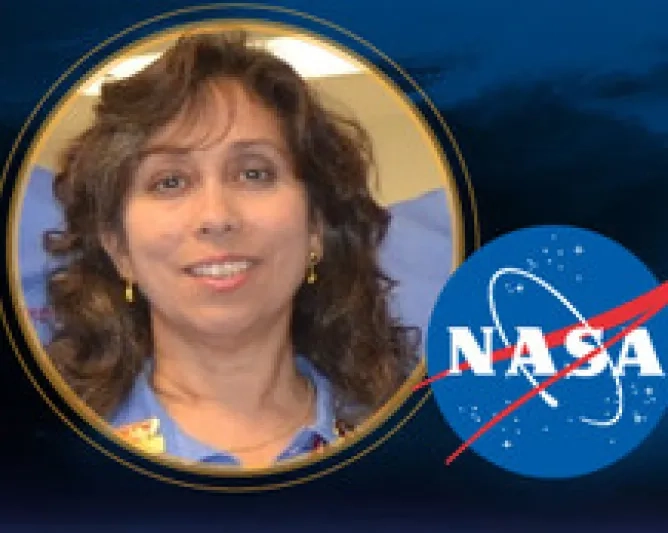Meeting with Nagin Cox, NASA JPL Spacecraft Operations Engineer

“Dare to Do Mighty Things: Exploring Beyond the Earth”
Since the beginning of time, people have looked up at the night sky and wondered at the frontiers of our knowledge. While there are examples of solitary human exploration, most endeavors that push our boundaries involve teams of people working together for a common goal. Robotic space missions are no different- they are defined by the passion of the people who build them, launch them, and send them out into the dark void to make great discoveries.
Come hear the stories of the NASA missions that cut through earthly political and cultural issues and make us rethink our place in the universe. Our robotic exploration of the solar system and beyond symbolizes all that humankind can do together and the legacy we leave for our children.
About Nagin CoxNagin graduated from Cornell University with a BS in Operations Research and Industrial Engineering and a BA in Psychology and was commissioned as an officer in the US Air Force. She worked in F-16 Aircrew Training and received a masters degree in Space Operations Systems Engineering from the Air Force Institute of Technology. As a captain, she served as an Orbital Analyst at NORAD/Space Command in Cheyenne Mountain, Colorado Springs. In 1993, joined the Jet Propulsion Laboratory (JPL) and has since served as a systems engineer and manager on multiple interplanetary robotic missions including NASA/JPL’s Galileo mission to Jupiter, the Mars Exploration Rover Missions and the Kepler telescope mission to search for earth-like planets around other stars. She is currently on the mission operations team for Mars Science Laboratory (MSL)- NASA’s Mars Curiosity Rover
About JPLJPL Director The Jet Propulsion Laboratory is a unique national research facility that carries out robotic space and Earth science missions. JPL helped open the Space Age by developing America's first Earth-orbiting science satellite, creating the first successful interplanetary spacecraft, and sending robotic missions to study all the planets in the solar system as well as asteroids, comets and Earth's moon. In addition to its missions, JPL developed and manages NASA's Deep Space Network, a worldwide system of antennas that communicates with interplanetary spacecraft. JPL is a federally funded research and development center managed for NASA by Caltech. From the long history of leaders drawn from the university's faculty to joint programs and appointments, JPL's intellectual environment and identity are profoundly shaped by its role as part of Caltech. Today JPL continues its world-leading innovation, implementing programs in planetary exploration, Earth science, space-based astronomy and technology development, while applying its capabilities to technical and scientific problems of national significance. JPL technology developed to enable new missions is also applied on Earth to benefit our everyday lives.